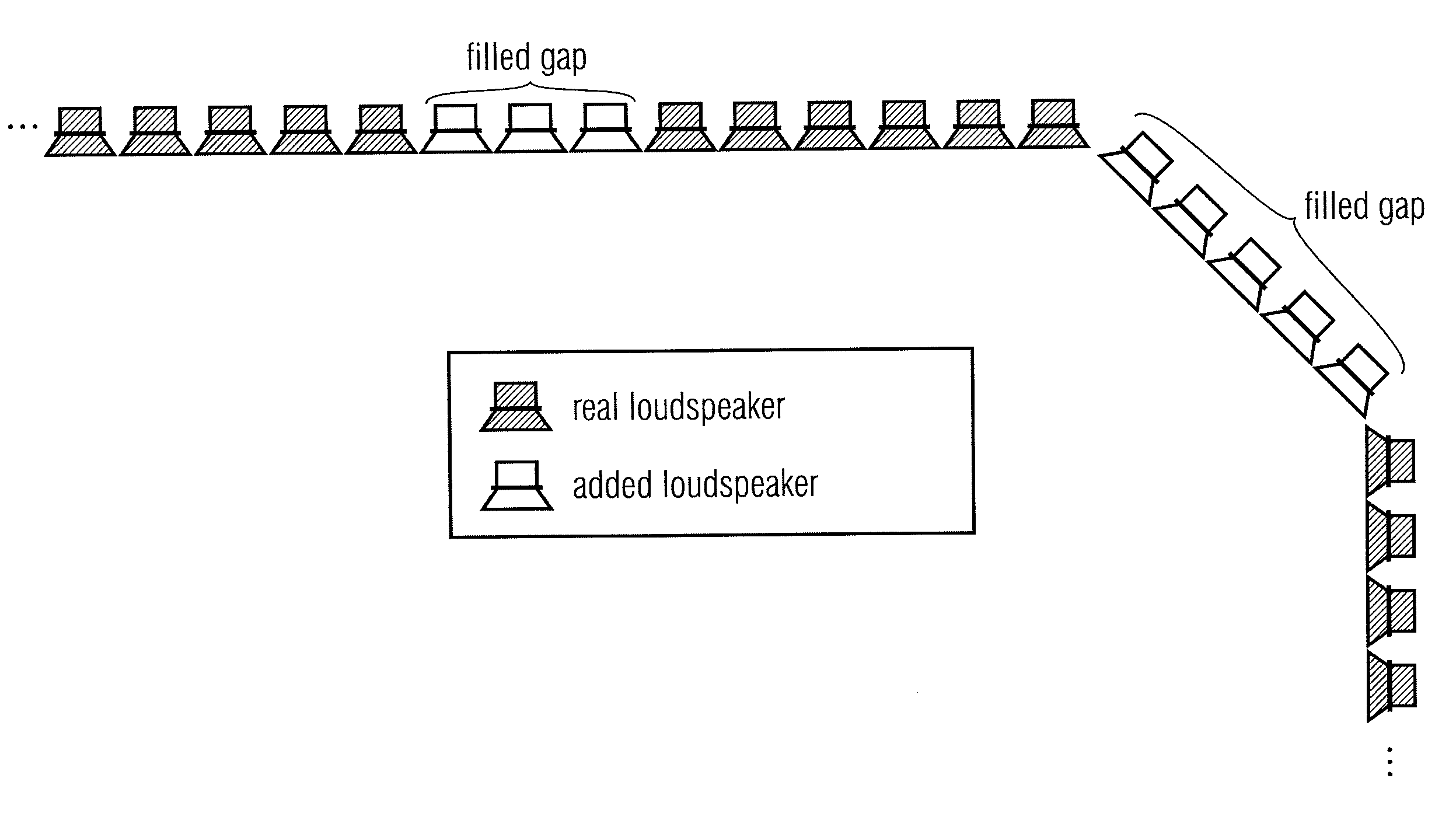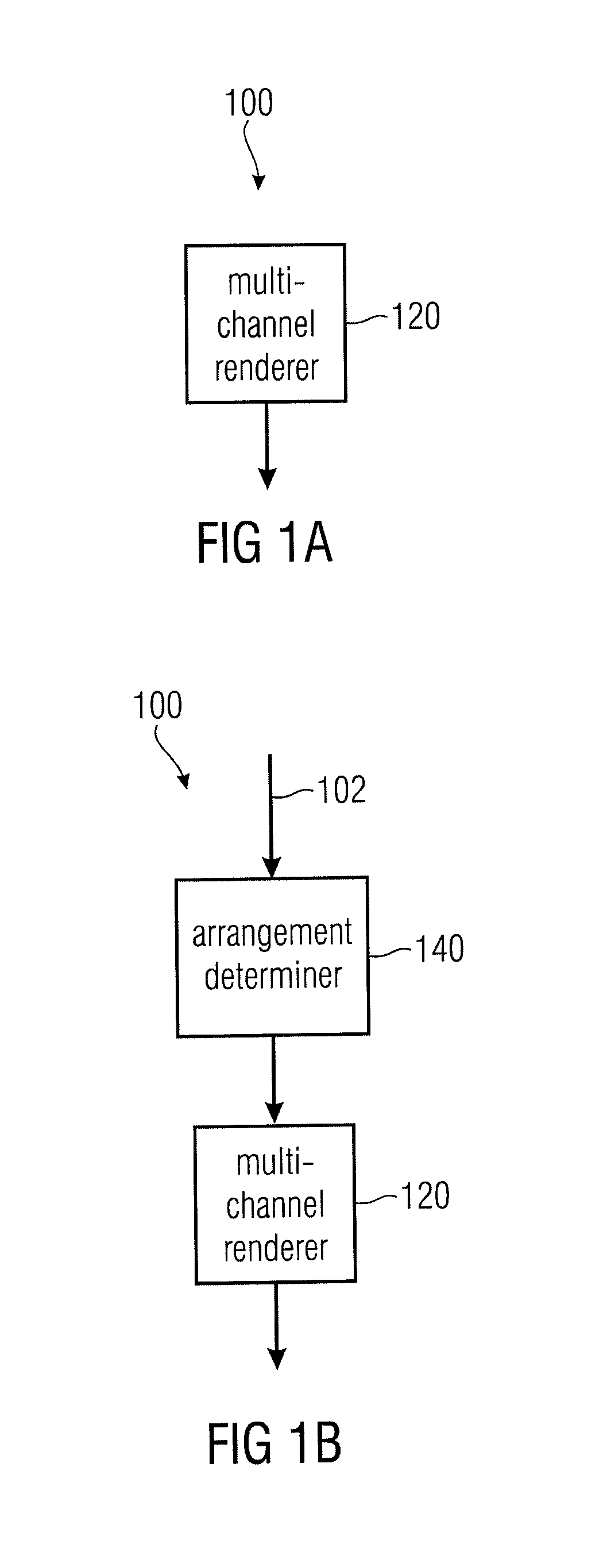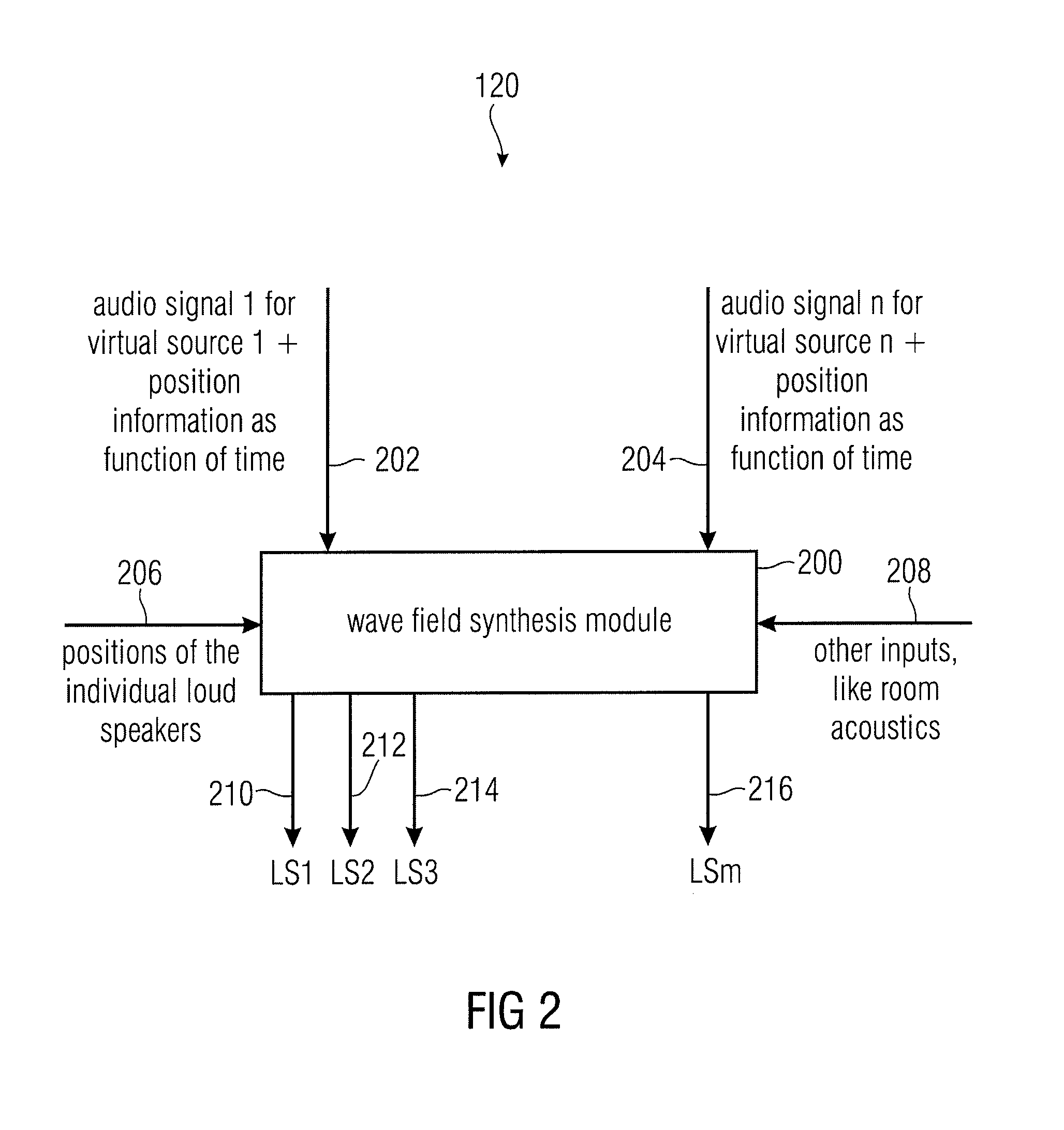Apparatus and Method for Calculating Filter Coefficients for a Predefined Loudspeaker Arrangement
- Summary
- Abstract
- Description
- Claims
- Application Information
AI Technical Summary
Benefits of technology
Problems solved by technology
Method used
Image
Examples
Embodiment Construction
[0039]In the following, the same reference numerals are partly used for objects and functional units having the same or similar functional properties and the description thereof with regard to a figure shall apply also to other figures in order to reduce redundancy in the description of the embodiments.
[0040]FIG. 1 a shows a block diagram of an apparatus 100 for calculating filter coefficients for a predefined loudspeaker arrangement according to an embodiment of the invention, wherein the predefined loudspeaker arrangement comprises a plurality of loudspeakers. The apparatus 100 comprises a multi-channel renderer 120. The multi-channel renderer 120 calculates a filter coefficient for each loudspeaker of a virtual loudspeaker arrangement, being different from the predefined loudspeaker arrangement, based on properties of a virtual source of an audio object to be reproduced by the predefined loudspeaker arrangement. Further, the multi-channel renderer 120 determines an adapted filter...
PUM
 Login to View More
Login to View More Abstract
Description
Claims
Application Information
 Login to View More
Login to View More - R&D
- Intellectual Property
- Life Sciences
- Materials
- Tech Scout
- Unparalleled Data Quality
- Higher Quality Content
- 60% Fewer Hallucinations
Browse by: Latest US Patents, China's latest patents, Technical Efficacy Thesaurus, Application Domain, Technology Topic, Popular Technical Reports.
© 2025 PatSnap. All rights reserved.Legal|Privacy policy|Modern Slavery Act Transparency Statement|Sitemap|About US| Contact US: help@patsnap.com



